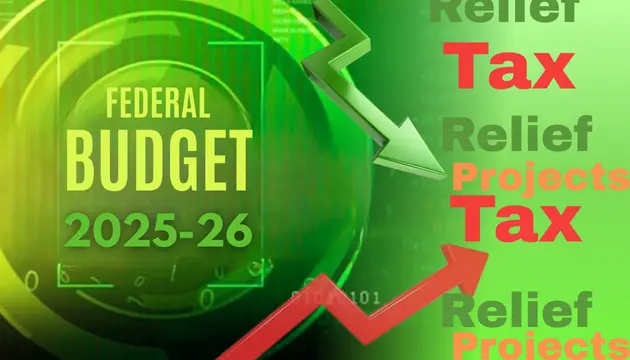ISLAMABAD – The Ministry of Finance has changed the date for presenting the federal budget for the next financial year (2025-26). According to the ministry’s spokesperson, the budget will now be presented on June 10, after Eid-ul-Azha, which is expected to fall on June 7.
Earlier, government sources had stated that the budget would be presented on June 2, and preparations were already in the final stages.
Sources in the Ministry of Finance said that negotiations with the International Monetary Fund (IMF) regarding the budget have not yet been finalized. Due to this, Prime Minister Shehbaz Sharif has urgently called a meeting with the economic team.
Officials said that more time is needed to finalize the budget targets. Although only a few days were required to wrap up talks, the Eid holidays have caused a delay of more than a week.
However, it has been confirmed that the IMF mission has completed its visit to Pakistan, and the remaining discussions on next year’s budget targets may be held virtually.
ALSO READ >>> Govt removes over 1,800 posts in housing ministry to reduce costs
It is important to note that a few days ago, reports had surfaced stating that the final round of talks between the government and the IMF was underway. It was expected that after these talks, the proposals for the 2025–26 budget would be finalized within a day or two.
The public, business community, and traders are closely watching the upcoming budget. Sources say the government is considering giving relief to salaried individuals and may propose tax exemption for those earning up to 1.2 million rupees annually.
At the same time, the government has assured the IMF that action will be taken to tighten restrictions on non-filers. In the new budget, non-filers may face strict limitations on the purchase of vehicles, property, and financial transactions.
Additional measures being considered include petroleum levy increases, surcharges on electricity bills, and higher gas prices. Used cars may be taxed 40% more than new ones.
The budget may also include ending tax exemptions for FATA and PATA regions and imposing GST on fertilizers.
Moreover, both Pakistan and the IMF have discussed introducing a carbon levy of Rs. 5 per liter on petrol and diesel in the upcoming fiscal year, which could generate around Rs. 25 billion.
Sources also said that the petroleum levy for the next fiscal year will not exceed Rs. 78 per liter, which could help raise about Rs. 1,423 billion.














